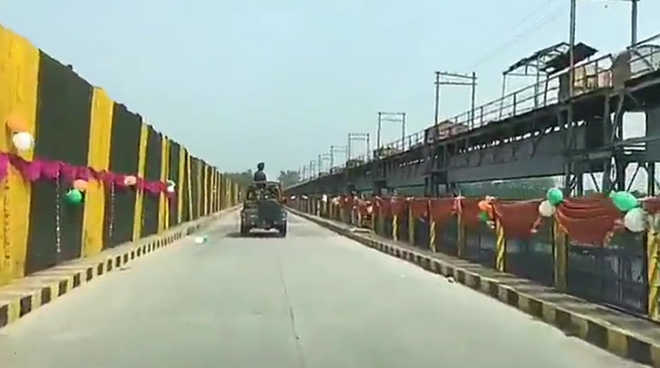A bridge in Hussainiwala
For nearly 50 years, there has been no thunder of passing trains over the bridge at Hussainiwala. The dedication of a new bridge at the site by Defence Minister Nirmala Sitharaman on Sunday will not bring the trains to resume the now-interrupted run from Mumbai to Peshawar. That has to await better times in Indo-Pak relations. Destroyed in the 1971 Indo-Pak war, the bridge also was a symbol of India's defensive mindset that was more in evidence on the China border where the then prevailing strategic mindset was to deny infrastructure to opposing armies to roll in. That mentality was mothballed on the China border. But for the doubters, the bridge's reconstruction should allay any remaining doubts.
This is sacred land in more ways than one. It is not only the site of pitched battles with Pakistani troops in 1965 and 1971. It was here that locals took matters in their hand and did not allow the cremation site of freedom fighter Bhagat Singh and his comrades to lapse into obscurity. It is hard to believe that this land was in Pakistan till 1961 when Jawaharlal Nehru brokered an exchange that brought 12 villages into India. If sentimentality to bring back the cremation site of the martyrs was the overriding then, the nostalgia element in Sitharaman's dedication of the bridge was also a nod to the martyr's memorial of the freedom fighters whose sacrifices put India's fight against colonialism in high gear.
Since Indo-Pak ties are in a limbo, the immediate use of the bridge will be to promote business, agriculture and better movement of Army vehicles and ammunition. The high-kicking and foot-stamping by border guards at Hussainiwala, less belligerent than at Wagah, will continue. But the once-principal road crossing between India and Pakistan has to await better times to become operational again. Till then, the restored bridge will stand out as a symbol of an extended hand of friendship to Pakistan if it can curb the incubation of anti-India militants on its soil.









